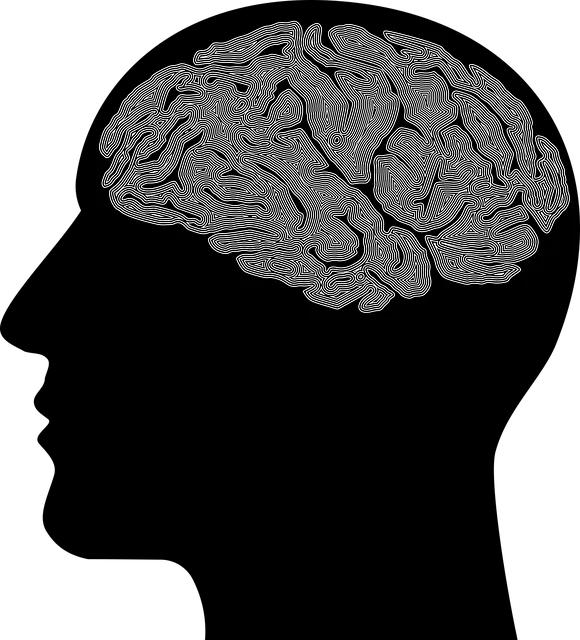The Kaiser Permanente Behavioral Health Center in Westminster utilizes the RFM framework to design tailored resilience-building programs for diverse communities, targeting specific populations through analysis of reach, frequency, and monetary value. Their structured approach includes assessing staff needs, creating customized programs with evidence-based strategies, pilot testing, continuous improvement, and regular implementation. Success is measured holistically by tracking clinical outcomes and patient feedback, ensuring programs like emotional intelligence training and stigma reduction effectively enhance well-being and resilience over time.
At the Kaiser Permanente Behavioral Health Center in Westminster, implementing RFM (Recovery, Flexibility, and Mastery) exercises has transformed patient care. This article explores how their innovative approach enhances resilience, offering a step-by-step guide for other healthcare providers aiming to integrate similar programs. We delve into the successful implementation at the center, focusing on measurable outcomes and continuous improvement strategies, specifically tailored to meet the unique needs of behavioral health patients. Discover how these practices contribute to improved patient outcomes at Kaiser Permanente Westminster.
- Understanding RFM and Its Role at Kaiser Permanente Behavioral Health Center Westminster
- Implementing Resilience-Building Exercises: A Step-by-Step Guide
- Measuring Success and Continuous Improvement at the Center
Understanding RFM and Its Role at Kaiser Permanente Behavioral Health Center Westminster

At Kaiser Permanente Behavioral Health Center Westminster, understanding the RFM (Reach, Frequency, and Monetary Value) framework is pivotal in shaping effective resilience-building exercises and programs. This approach allows healthcare professionals to tailor interventions that not only attract but also retain individuals from diverse backgrounds, a key aspect of fostering emotional well-being promotion techniques. By analyzing reach, frequency, and monetary value, the center can identify target populations, understand their engagement patterns, and design initiatives that resonate with their unique needs.
Implementing this strategy aligns with the mission to enhance mental wellness through innovative channels, such as the Mental Wellness Podcast Series Production. Additionally, it supports the ongoing Healthcare Provider Cultural Competency Training programs, ensuring staff are equipped to address a wide range of patient concerns while fostering inclusive care environments that cater to the emotional and mental health journeys of every individual who walks through their doors.
Implementing Resilience-Building Exercises: A Step-by-Step Guide

Implementing Resilience-Building Exercises at Kaiser Permanente behavioral health center Westminster involves a structured approach to enhance staff well-being and prevent burnout, especially in the demanding healthcare sector. Here’s a step-by-step guide to effectively integrate these exercises into daily routines.
1. Assess Needs and Goals: Begin by evaluating the specific challenges faced by healthcare providers at Kaiser Permanente behavioral health center Westminster. Identify areas of stress, potential triggers, and individual resilience levels through surveys or focus groups. This step ensures tailored interventions that address the unique needs of your team.
2. Design Customized Programs: Based on the assessment, develop a comprehensive resilience-building program. Incorporate various exercises such as mindfulness meditation, deep breathing techniques, physical activity breaks, and cognitive reframing strategies. These activities should promote stress management and self-care routine development for better mental health, aligning with Burnout Prevention Strategies for Healthcare Providers.
3. Pilot and Feedback Loop: Introduce the programs to a pilot group, encouraging open communication and feedback. Adjust the exercises based on their experiences and preferences to ensure engagement and effectiveness. This iterative process allows for continuous improvement, making the initiatives more inclusive and beneficial for all staff members.
4. Regular Implementation and Training: Integrate resilience-building exercises into the center’s daily operations. Provide clear instructions and training sessions to ensure proper technique and understanding. Schedule dedicated time slots for these activities, promoting a culture of self-care and well-being.
5. Monitor Progress and Adapt: Regularly assess the impact of the programs through surveys and individual check-ins. Track improvements in stress levels, job satisfaction, and overall resilience. Be prepared to adapt and modify the exercises as needed to cater to evolving staff needs.
Measuring Success and Continuous Improvement at the Center

At the Kaiser Permanente behavioral health center in Westminster, measuring success goes beyond simple numbers. It involves a holistic approach that captures the essence of improved well-being and enhanced resilience among patients. This includes tracking not just clinical outcomes but also qualitative feedback from participants to ensure exercises like emotional intelligence training and mental illness stigma reduction efforts are truly impactful. By collecting and analyzing patient narratives, the center can pinpoint areas where resilience building initiatives excel and identify opportunities for refinement.
Continuous improvement is a cornerstone of their strategy. Regular reviews and adjustments ensure that programs remain relevant and effective in addressing the evolving needs of the community. This dynamic approach allows the Kaiser Permanente behavioral health center Westminster to foster an environment where emotional intelligence thrives, mental illness stigma is reduced, and individuals build resilience necessary for navigating life’s challenges.
The implementation of RFM (Resilience, Flexibility, and Mindfulness) exercises at the Kaiser Permanente Behavioral Health Center Westminster has demonstrated significant benefits in building resilience among patients and staff. By following a structured step-by-step guide for integration, the center has successfully incorporated these practices into their routine, fostering a more adaptive and supportive environment. Continuous improvement is measured through regular feedback and assessment, ensuring that the RFM program remains tailored to the unique needs of the Kaiser Permanente Behavioral Health Center Westminster community. This approach not only enhances overall well-being but also positions the center as a leader in innovative behavioral health care solutions.






